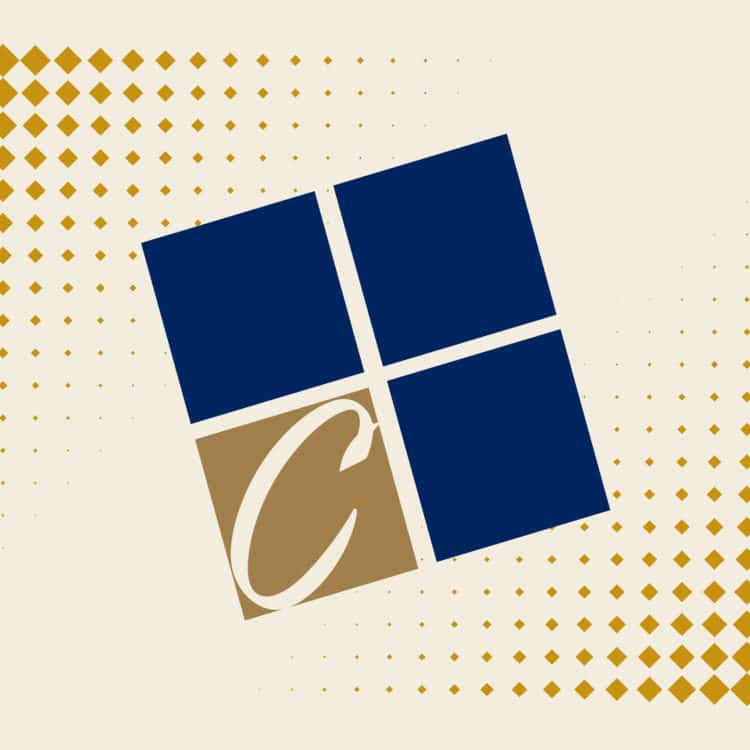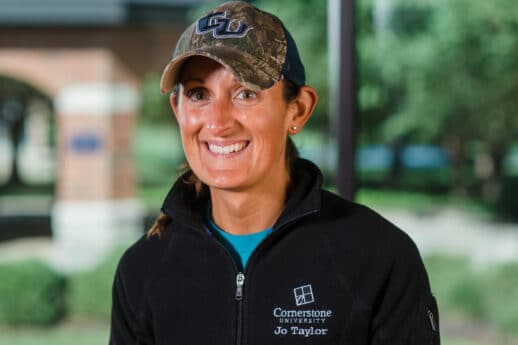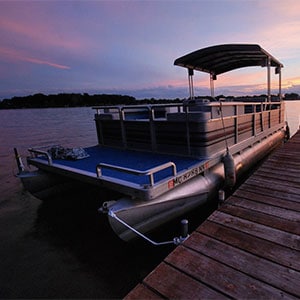When I was first asked about writing for this blog I was honored to be considered. But no more than 30 seconds later I was riddled in fear.
Fear of what other people would think about my post.
Fear that my post wouldn’t be enjoyed or have an effect on others.
Fear that though my professor thought I was a good writer in my M.B.A. courses and recommended me as an author, I wouldn’t be adequate to write for this blog.
The fear I felt was the same fear I felt as I started my master’s program at Cornerstone University’s Professional & Graduate Studies.
Pursuing Graduate Education
The M.B.A. 4+1 program was an amazing opportunity that I couldn’t possibly pass up. But I was afraid for it to begin.
What if I failed? What if I am in over my head? What if I just don’t have the time to complete all the assignments? I was coming up with every excuse I could think of as to why I shouldn’t get my master’s degree.
It all came down to feeling inadequate in being able to obtain a master’s degree. I had limited professional experience. I was not a stand-out undergraduate student—I mean, come on, I did five years of undergrad, and I was not in the education program.
And, I had a lot on my plate.
I was coaching volleyball at CU. I was a long-term Spanish substitute teacher out in Lake Odessa (no, I don’t know Spanish very well, so I had to teach myself before I could teach them). I was driving to Chicago every free weekend I had to see my fiancé. I was planning a wedding for the upcoming summer and coaching club volleyball. I had every reason to not pursue my dreams of one day getting a master’s degree to be more qualified and to stand out as a business professional and as a head college volleyball coach.
Instead, I took a leap of faith and signed up for the program.
Moving Forward in Faith
This fear of inadequacy struck again after I finished the “general education” part of my M.B.A. program. The program is structured in a way that all students take the core curriculum and then split off into one of four concentrations: project management, finance, global business and health care. I had decided to specialize in health care to help my now-husband eventually open his own practice should he want to in the future.
Unfortunately, the only time I had ever spent in a health care facility was for my multiple athletic injuries throughout my college career at CU. As I read all the student introductions in our forum postings, every single person was older than me, more experienced and had already worked in the health care setting. They had first-hand experience in hospitals and knew how health care management worked.
Not having the upper hand was unfortunate, as there were several things I had to Google to know what the other students were referring to. But in the long run, I loved being the non-biased person in the class who hadn’t gone through certain issues at the hospital.
I brought a different perspective to the courses, one from more of a patient’s perspective than the employee’s perspective. I also bounced ideas off of my husband who had a medical student and surgery resident’s perspective. Never once did the professors nor the other students degrade me for my outlandish ideas or opinions. In fact, one professor said it was refreshing to have a student with such a different perspective of the health care industry compared to the other students who had been immersed in the health care field.
I never once felt over my head. When things started to go over my head, the faculty were willing to help me. When I needed to interview health care staff, the faculty helped set me up with health care employers they knew.
Discussion boards were interesting as professors and students kept everything engaging. People would be still replying to comments a few weeks after responses were due because the topics we wrote about were applicable, and we actually had a general interest in the topics.
Advancing in New Opportunities
I am so thankful I took the leap of faith and got my M.B.A. in health care from CU. I was not inadequate. In fact, I graduated with a 3.96 G.P.A. and then went on to land a higher paying job than the one for which I had originally applied. For that job, the person who interviewed me said that with my education and ability to prioritize and juggle all those life events and still keep track of everything, I would be a better fit for an upper-level job.
But beyond all coursework and landing a great job, throughout my master’s program, I learned more about myself.
One of the courses includes a self-assessment that helped me identify that I was struggling with anxiety. The professor was willing to talk to me about the result and encouraged me that it was okay to seek medical help, that it didn’t mean something was wrong with me and that struggling with anxiety is not something to be embarrassed about.
The faculty have a deep understanding and care for their students. They get that we are real people who have other things going on besides being a student, and they want us to do well both in class and in life.
If you’re hesitant to take that leap of faith and apply to get your master’s degree, I challenge you to take that leap. What is the worst that can happen?
You’re capable of more. Just as long as you remember if you fail, fail forward and that is still progress.
“But despite how we feel, all the disappointment in the world will never change the promises of God, the reality of Jesus, or His destiny for our lives. None of our broken dreams, personal heartbreaks, or shattered plans can stop his desire for us to fulfill our purpose.” —Christine Caine











